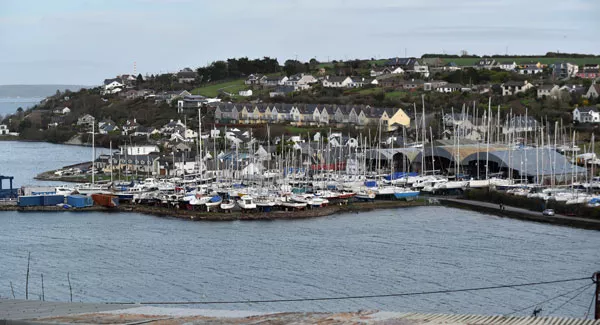Ireland is contributing to the global problem of plastic pollution.
An in-depth study of our coasts and waterways shows just 16% are clean.
While the majority of our towns are clean, our beaches and waterways are not.
Business group IBAL says for an island like Ireland, plastic can easily wind its way to the sea, irrespective of where it is dropped.
The group studied litter levels at over 40 beaches, rivers and harbours and found only 1 in 6 were clean while 14% were classed as littered or heavily littered.
Salthill in Galway emerged as one of the cleanest beaches alongside Curracloe in Wexford and Seapoint in Dublin.
Salthill was praised in the report for tackling a previous issue around dog fouling.
Lough Rea, Co Galway, the River Shannon at Carrick-on-Shannon and the Nore in Kilkenny were found to be clean.
The Barrow in Carlow town and the Tolka in Dublin were both heavily littered.
The report found that over a dozen tyres, some bicycles, a shopping trolley and a child's tricycle dumped at Tolka River at Annesley Bridge.
KiImore Quay harbour was clean but Cork Harbour near Midleton was heavily littered and among the worst areas surveyed.
The report stated that Cork Harbour was "subject to dumping, with heavy levels of land-based food related items and large numbers of traffic cones and household appliances discarded in the water".
Also in Cork, Blackrock Castle was found to have "heavy levels of plastic bottles, plastic bags, cans, food/sweet wrappers and large pieces of plastic … several plastic bags of rubbish and other miscellaneous items were dumped adjacent to the coast.”
IBAL's Connor Horgan says litter which traditionally concerned tourism and business, now has a global significance for our very survival.

Mr Horgan added that when it comes to marine litter the sea starts at our own front door.
According to IBAL, the most common forms of litter found were food wrappers, plastic bottles, cans and cigarette butts.
New research has shown that a single cigarette butt can contaminate up to 200 litres of ground water.
“Our regular surveys consistently show 80% of our towns to be clean. We cannot say the same for our beaches and waterways,” said Conor Horgan of IBAL.
Mr Horgan said that in this, the second year that the study has extended to coastal areas and waterways, IBAL has seen "significant improvement".
However, the group says it will "keep putting pressure on local authorities and others to give priority to these areas and support the work of the thousands of volunteers cleaning litter from our coastlines.
"There is no reason why they should not be as clean as our towns."






